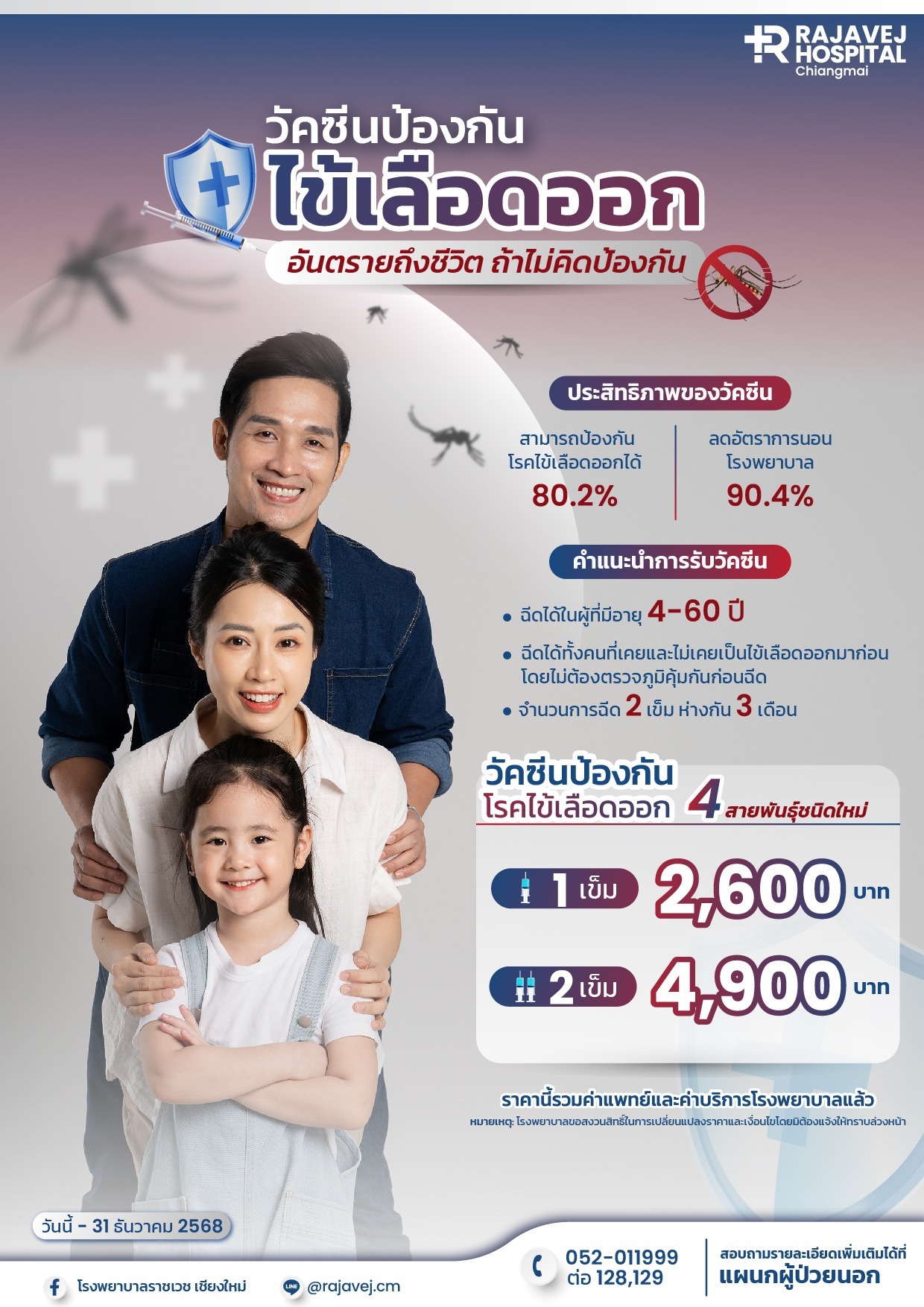Dengue fever is caused by the Dengue virus (DENV), which has four strains: DENV-1, DENV-2, DENV-3, and DENV-4. It is transmitted through bites from Aedes mosquitoes.
Symptoms of Dengue Fever
- Sudden high fever (above 38 °C, sometimes reaching 40-41 °C) lasting 2-7 days
- Nausea, vomiting, and loss of appetite
- Red rash, small red spots, or bleeding (nosebleeds, bleeding gums, bloody stool/urine)
- Severe abdominal pain, especially under the right rib cage
- In severe cases: shock syndrome, causing restlessness, cold hands and feet, low blood pressure, and decreased urination
- Liver enlargement and tenderness in some cases
- Recovery usually occurs after 7-10 days, but a red itchy rash may appear on hands and feet before fully healing
High-Risk Groups
- Obese individuals
- People with chronic diseases (diabetes, heart disease, high blood pressure, kidney disease, blood disorders)
- Elderly individuals with weaker immunity
New Dengue Vaccine – Qdenga
Qdenga is new live-attenuated recombinant dengue vaccine from Germany that provides protection against all four strains of the dengue virus.
Vaccine Benefits
- 80.2% protection against dengue fever
- 90.4% reduction in hospitalization rates
- Suitable for individuals aged 4-60 years
- 2 doses (subcutaneous injection) given 3 months apart
- Can be administered to both individuals with and without prior dengue infection
- No need for blood test before vaccination
If you have had dengue before, wait at least 6 months after recovery before receiving the vaccine.
Side Effects
Mild and temporary: Pain at the injection site, headache, muscle pain (resolves within 1-3 days)
Comparison: Qdenga vs. Dengvaxia
| Feature | Qdenga (New Vaccine) | Dengvaxia (Older Vaccine) |
| Country of Manufacture | Germany | France |
| Effectiveness | 80.2% Protection | 65.6% Protection |
| Hospitalization Reduction | 90.4% | 80.8% |
| Age Eligibility | 4-60 years | 6-45 years |
| Number of Doses | 2 doses (0 and 3 months) | 3 doses (0, 6, and 12 months) |
| Blood Test Before Vaccination? | No | Yes |
| Who Can Get Vaccinated? | Anyone, regardless of past infection | Only those with confirmed prior dengue infection |
| Who Cannot Receive the Vaccine? | Pregnant women, breastfeeding women, people with weakened immune systems | Same as Qdenga, plus those without prior dengue infection |
Who Cannot Get the Dengue Vaccine?
- Severe allergic reaction to any vaccine ingredient
- Immunocompromised individuals (e.g., HIV patients, chemotherapy recipients)
- Pregnant or breastfeeding women
Available at: Public Relations Department, 1st Floor, Rajavej Hospital
Call: 052-011999

